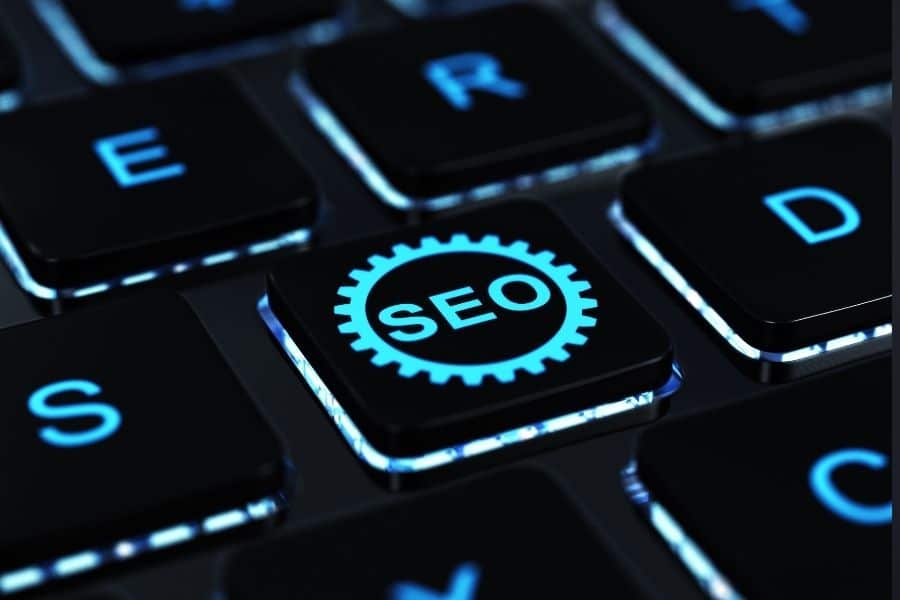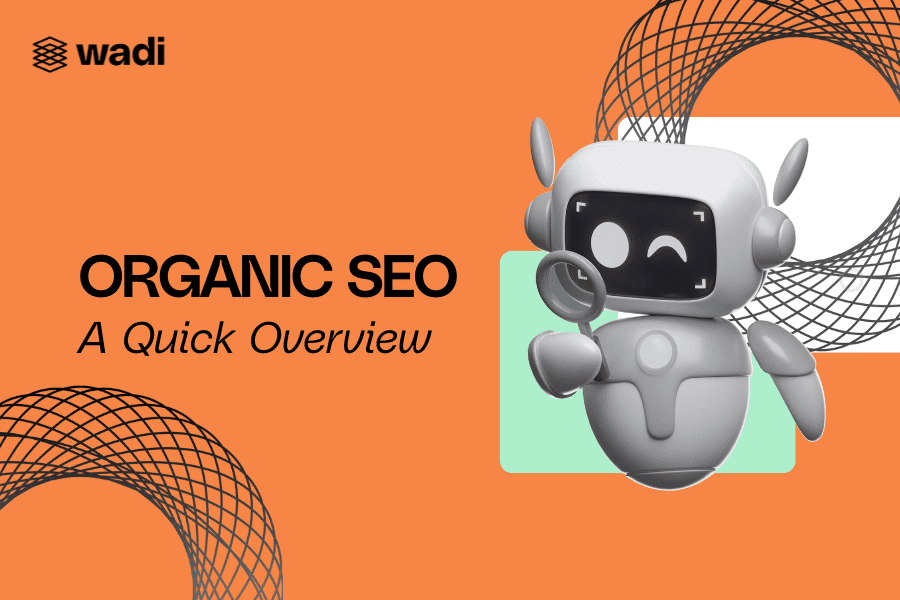Table of Contents
ToggleIn today’s digital age, where information is just a click away, optimizing your online presence has never been more crucial, especially for AI companies looking to stand out in a highly competitive landscape. As marketing managers in the AI industry, you understand the significance of SEO (Search Engine Optimization) in driving success. In this comprehensive guide, we will delve into effective SEO strategies tailored specifically for AI companies, equipping you with the knowledge to elevate your online visibility and authority.
Understanding the SEO Landscape in the AI Industry
The Importance of SEO for AI Companies
SEO is the Lifeblood of Online Success: For AI companies, SEO is more than just a marketing strategy; it’s the lifeblood of online success. It’s the means by which you make your presence felt in a crowded digital space. An effective SEO strategy ensures that your target audience can find your company when they need it the most.
Demonstrating Expertise: SEO not only boosts your visibility but also positions your AI company as an industry expert. When your content ranks high in search results, it conveys trust and authority to potential clients.
Converting Visitors into Clients: Beyond attracting visitors, SEO is about converting them into clients. By optimizing your content, you’re ensuring that those who find your website are more likely to take action – whether it’s signing up for a newsletter, requesting a demo, or making a purchase.
Key SEO Challenges in the AI Industry
Navigating Algorithm Updates: The ever-evolving nature of search engine algorithms can be daunting. As AI companies, staying on top of these changes and adapting your SEO strategies accordingly is essential. Consistency in monitoring and adjusting tactics is key.
Intense Competition: The AI sector is booming, attracting fierce competition. To stand out, you must differentiate your SEO efforts by targeting niche keywords and creating high-quality content that provides unique value.
Optimizing AI-Related Content: AI-related content can be technically complex. Balancing the need for detailed information with readability is a challenge. Ensure your content strikes this balance and explains AI concepts clearly.
SEO Trends in the AI Sector
Voice Search Optimization: With the rise of virtual assistants and smart speakers, optimizing your content for voice search is crucial. Conversational and natural language queries are becoming more common.
Mobile Optimization: Mobile devices play a significant role in accessing AI-related content. Ensure your website is mobile-friendly, loads quickly, and offers a seamless experience for users on smartphones and tablets.
AI-Driven SEO Tools: Embrace AI-powered tools that can assist in keyword research, content optimization, and even predictive analytics. These tools can enhance the efficiency and effectiveness of your SEO efforts.
Crafting Effective SEO Strategies for AI Businesses
Keyword Research and Targeting for AI Companies
Understanding User Intent: Dive deep into understanding user intent behind AI-related queries. What are potential clients searching for? What questions do they have? Tailor your content to address these queries effectively.
Long-Tail Keywords: Utilize long-tail keywords specific to AI services or products. These keywords often have lower competition and can result in higher conversion rates. Use AI tools to discover long-tail opportunities.
Content Quality: Creating high-quality, informative, and well-researched content is paramount. It’s not just about keywords; it’s about providing value to your audience and positioning your company as a trusted resource.
On-Page SEO Optimization for AI Websites
Website Structure: Ensure your website’s structure is logical and user-friendly. A clear navigation system makes it easier for both users and search engines to find and understand your content.
Page Speed: A slow-loading website can lead to higher bounce rates. Optimize your site’s speed by compressing images, using browser caching, and choosing a reliable hosting service.
Schema Markup: Implement structured data markup to help search engines understand your AI-related content better. This can lead to rich snippets in search results, improving click-through rates.
Off-Page SEO Tactics for AI Industry Domination
High-Quality Backlinks: Building a strong backlink profile is crucial. Create shareable content and reach out to industry influencers and thought leaders for collaborations that can generate high-quality backlinks.
Social Media Engagement: Social media is a powerful tool for sharing content and engaging with your audience. Share your articles, engage in discussions, and leverage social signals to boost your SEO.
Content Marketing: Develop a content marketing strategy that aligns with your SEO efforts. Consistently producing valuable content not only attracts visitors but also keeps them engaged.
Technical SEO Considerations for AI Websites
Site Speed: Monitor and improve your website’s loading speed. Google considers page speed a ranking factor, and a faster site provides a better user experience.
Mobile-Friendly Design: With the increasing use of mobile devices, having a responsive, mobile-friendly design is essential. Google prioritizes mobile-friendly websites in its search results.
Secure Connection (HTTPS): Ensure that your website uses HTTPS, which provides a secure connection. Google gives preference to secure websites, and it can enhance user trust.
Measuring Success and Staying Ahead in AI SEO
Key SEO Metrics for AI Companies
Organic Traffic: Monitor the volume and trends of organic traffic to your website. An increase in organic traffic indicates that your SEO efforts are paying off.
Keyword Rankings: Keep track of your keyword rankings in search results. Aim for higher positions for keywords relevant to your AI products or services.
Conversion Rates: Measure the conversion rates on your website. Analyze which pages or content types have the highest conversion rates and optimize accordingly.
User Engagement: Assess user engagement metrics, such as time spent on site, bounce rate, and pages per session. High engagement indicates that visitors find your content valuable.
Competitor Analysis and Benchmarking
Competitor SEO Analysis: Regularly analyze the SEO strategies of your competitors in the AI sector. Identify their strengths and weaknesses, and use this information to refine your own tactics.
Benchmarking: Benchmark your AI company’s performance against top-performing companies in the industry. This can provide valuable insights into areas where you can improve.
Staying Updated with AI and SEO
Continuous Learning: Stay informed about the latest developments in both the AI and SEO industries. Attend webinars, seminars, and workshops to keep your knowledge up-to-date.
Networking: Connect with SEO experts in the AI field. Networking can provide you with valuable insights and opportunities for collaboration.
Industry Blogs: Regularly follow industry-specific blogs and news sources to stay informed about the latest trends and updates in AI and SEO.
Expert Tips for Marketing Managers in AI Companies
Collaborating with AI Experts for Content Creation
Leverage Internal Expertise: Collaborate closely with your AI experts to create content that not only demonstrates your company’s expertise but also addresses the specific needs and pain points of your audience.
Explaining Complex Concepts: AI-related topics can be complex. Work with your AI experts to simplify these concepts and make them accessible to a wider audience.
FAQs:
Why is SEO important for AI companies?
SEO is crucial for AI companies to enhance their online visibility, attract potential clients, and establish industry authority.
What are the key challenges in SEO for the AI industry?
Some challenges include evolving algorithms, competition, and technical complexities associated with AI-related content.
How can marketing managers leverage AI tools for SEO success?
Marketing managers can use AI tools for tasks like keyword research, content optimization, and data analysis, streamlining their SEO efforts.
What SEO metrics should AI companies track to measure success?
Important metrics include organic traffic, keyword rankings, conversion rates, and user engagement, among others.
How can AI companies stay updated with the latest SEO trends in the industry?
Staying updated involves continuous learning, following industry blogs, attending webinars, and networking with SEO experts in the AI field.






